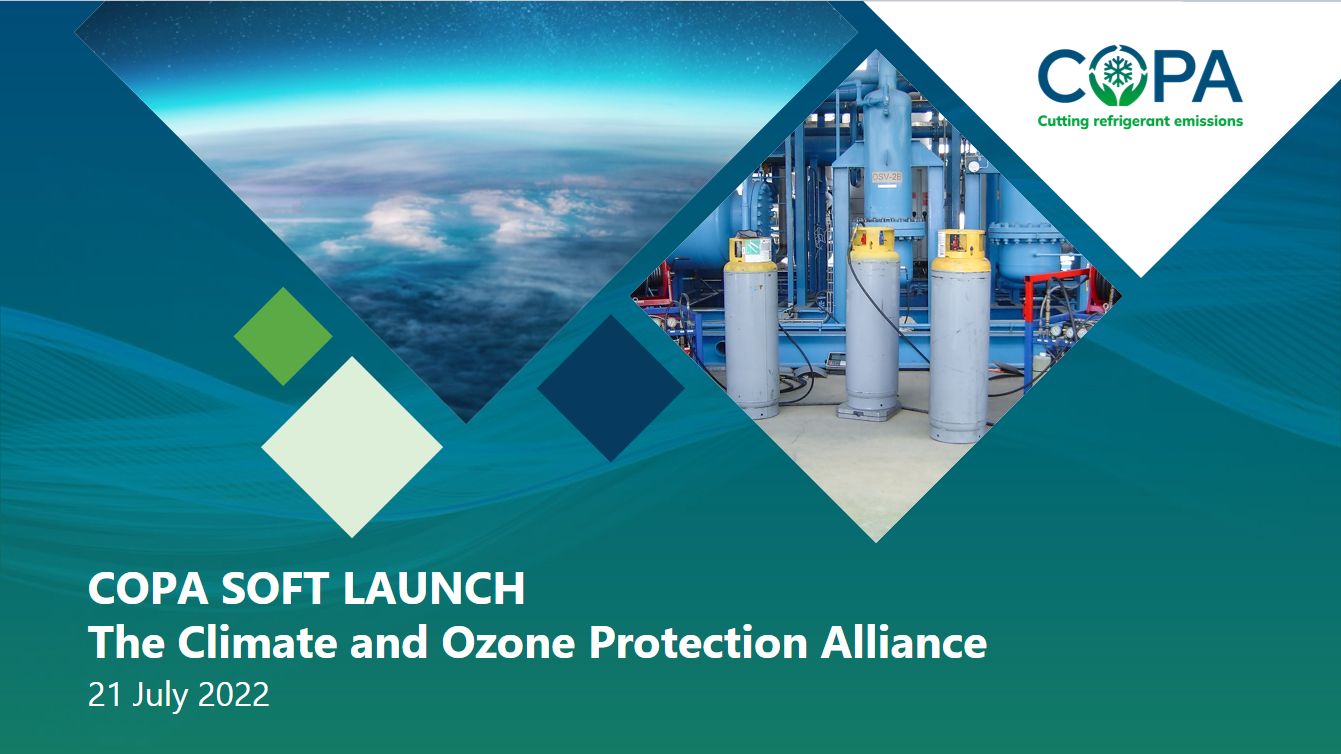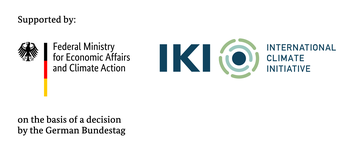
Online Event
Virtual Soft Launch of the Climate and Ozone Protection Alliance
After weeks and months of work from different parties the excitement was big to finally launch the Climate and Ozone Protection Alliance (COPA).
On behalf of the German Federal Ministry for Economic Affairs and Climate Action (BMWK), COPA will focus on pointing light on a blind spot that was left behind for quite some time: Outdated or end-of-life refrigerants, including foams, are not being managed in an environmentally sound manner, and lead to the accumulation of so-called ODS and HFC banks. COPA accelerates the mitigation measures urgently needed to address accumulated amounts of Ozone Depleting Substances (ODS) and Hydrofluorocarbons (HFCs).
As an integral part of the launch, the new website of the Alliance was presented by the COPA Secretariat, currently formed by GIZ. It contains the specification of the working groups, what COPA is all about, information about ODS and HFC banks management, as well as the form to become a member of the Alliance.
About COPA
By joining COPA, members gain access to a global network of knowledge and resources. Match-making between actors will be enabled and a flexible array of services provided.
The network will amplify the reach of actors and enhance the impact of activities in the field of ODS and HFC banks management.
COPA is open to all countries and organisations, willing to support the global shift to sustainable refrigerant management and closing the loop to a circular economy in the cooling sector.
Who was invited and what did we talk about?
The event started with Welcome Remarks by Nicole Wilke, from the German Federal Ministry for Economic Affairs and Climate Action. Following this, the COPA Secretariat was introduced by Philipp Munzinger, Project Manager of GIZ Proklima. After this warm introductory section, the panel discussion followed, to which members of the Core Group of the new Alliance were invited.
The discussion was based on the perspectives of the speakers on the global shift towards sustainable refrigerant management. We had the opportunity to hear the perspectives of Ms. Hua Xue (China), Programm Officer at the Foreign Environmental Cooperation Office (FECO) of the Ministry of Ecology and Environment of the People's Republic of China (MEE) and of Mr. Joseph Baffoe acting director at the Climate Change and Ozone Department of the Environmental Protection Agency in Ghana. As the first COPA partner country Ghana shared the reasons of being part of the alliance and what they expect.
Core Group
The COPA Core Group consists of key and committed stakeholders, representing donors, governments, the civil society, academia and the private sector. The Core Group is an interim body, responsible for setting up the COPA governance structure, providing feedback and guidance on strategic questions and creating a space for dialogue and cooperation.
Members of the Core Group are: Ole Nielson, Chief, Montreal Protocol Division, UNIDO, Ajiniyaz Reimov, Programme Specialist Montreal Protocol and Chemicals & Waste Management Unit, UNDP, Clare Perry & Sophie Georghegan, Environmental Investigation Agency (EIA), Ken Logan, Sustainability Director of A-Gas International and João Mendes de Araújo, Researcher at NOVA School of science Technology as well as Rachel Pekker, Desk Officer from the Federal Ministry for Economic Affairs and Climate Action.
As for the members of the Core Group, their discussion addressed topics such as COPA's business perspectives, the biggest challenges faced in dealing with sustainable refrigerant management, and how COPA will shed light on the blind spot that is the management of ODS and HFCs. In addition, promising solutions to manage ODS and HFC banks were discussed.
What is coming next?
The working groups on technology solutions, financing mechanisms, policy framework and implementation models will get together and follow up on their work. If you are interested in joining and becoming a member, you can find more information here.
